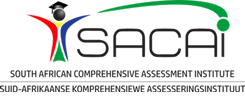
How to choose the right subjects for you!
Careers


In grade 9, learners have to choose subjects for Grade 9. But this can be incredibly difficult for learners who are still in the earlier stages of their high school careers. Last month, we held our very first subject choices webinar where expert, Vanessa Kitching, spoke to our parents and learners about subject choices and how psychometric testing can assist learners in making this important decision.
What should you look at when choosing subjects?
First and foremost you will need to look at your future goals or career, even if you don’t know what that is yet. Perhaps you have an idea of a field you may want to go into. However, you need to keep in mind that the subjects you choose in Grade 9 are going to be with you in the long term and this can affect the type of tertiary education that you could have access to.
When trying to decide which subjects to take, the first point of reference is usually subjects that you enjoy and subjects that you are good at. List these out and consider the benefits and drawbacks of taking these subjects. Here are 7 tips to help you choose subjects.
Aside from only considering what you enjoy, it is very important to consider how your degree requirements might impact which subjects you should take. Each institution has different entry-level requirements however here are some guidelines:
Universities usually structure their degree requirements in three larger baskets
Basket 1
The first basket is for those types of degrees where you must have compulsory subjects in Grade 12. For instance, some degree programmes may require you to have taken Mathematics Core and to have achieved a specific result in this subject.
Examples of a degree with compulsory subjects would be high-functioning degrees such as engineering, medicine and veterinary science. For instance, if you want to study to become a vet. Most universities in South Africa require that you have compulsory subjects such as Maths and Physical Science. They also strongly recommend that you have Life Science.
Basket 2
This is for degrees with no particular compulsory subject set, but have strongly recommended subjects. For example, you may not be required to take Physical Science for certain science-related fields but they will list this subject as a “highly recommended” subject.
Basket 3
Then there are degrees with no compulsory or recommended subjects and they just look at your admission point score.
Degree programmes where they are only recommended subjects usually fall within humanities. But of course, can be found in other departments as well. Just to illustrate an example, if you wanted to study to become an actor, most universities don’t have said compulsory subjects. But they strongly recommend that the student has Grade 12 with subjects such as dramatic arts or visual arts.
How do you choose subjects that are the right choice?
Now, how can we find out that you’re making the right choice? We can do so by using psychometric assessments. Psychometric testing will help you to understand what your strengths and weaknesses are. Understanding these will help you narrow down some helpful career options for you and therefore, provide guidance for helping you choose subjects that are right for you. Let’s look at what psychometric testing is.
In a nutshell, it’s really the administration of assessment tools or measures to assess certain psychological constructs. The psychometric testing process involves an intake interview. This is where we get to know the students and their life, see what their socioeconomic situation is and what sort of access to resources they may have. On assessment day, the student completes the necessary psychometric assessments and the results are scored and interpreted and a report is compiled.
That report then forms the basis of the feedback session. We speak about the results and things that have emerged from the assessments. So the feedback session following the psychometric assessment result is not just merely advice to go study perhaps A or B.
What we look at and what we do in the feedback session and in the report is to put together a stone-clad plan from Grade 9 to Grade 12. To equip the student and ensure that they will have the skills in Grade 12 to enter the type of education that we feel will assist them in their chosen career path.
It may seem quite premature to already be discussing careers when the student is in Grade 9. But the fact of the matter is the subjects that learners choose for Grade 10 are going to reflect on their Grade 12 certificate and that is what the universities will look at for admissions.
Why should you do psychometric testing?
Well for three main reasons it’s Preparedness, Prevention and Personal discovery!
Psychometric testing also helps us to prevent any kind of mismatches between the students and their studies or career. Of course what we don’t want to happen is for someone to enrol at university and maybe six months a year or two years down the line, sit back and say this isn’t me, I don’t want to do it or I’m not able to do it. The course load is too challenging or even worse than that a student proceeds to complete their degree, enters the open labour market and wakes up after five years and thinks I don’t want to be in this job. This is not the field that I saw myself in.
So the psychometric assessment helps us to prepare the students to prevent any mismatches and assist in some personal discovery. The assessments are great in helping you learn about yourself, learn about your unique personality and your strengths and where you need to develop and we take all of those concepts together to put forward a path for the student.
What do we look at when doing the tests?
The Personality Assessment
When doing the test there are three psychological constructs that assess Personality, Aptitude and Interests. You may be wondering why we assess Personality. The fact of the matter is we can see that there are certain personalities that resonate with certain jobs. For example, a bubbly outgoing person would be best suited to sales or marketing or a management role.
Alternatively, someone who prefers to work on their own would be ill-suited to jobs in sales or marketing. What we look at when we assess personalities, is to understand the student’s unique personality profile. This helps us link it to potential jobs that would be beneficial for them in the future. Once we know what those jobs are, we can start to align our subject package accordingly.
The Aptitude Assessment
The second construct that we assess is Aptitude. This looks at the person’s cognitive ability, looking at problem-solving and other aspects. What we want to do here is we want to see where is the student, where do they strengths lie. What sort of attitude aspects or where might they experience some difficulty? If we know these things before we choose subjects, we can make more informed choices in terms of subjects that they will perform better in than others.
An aptitude assessment is also very important because often times normal school results on your report card may not accurately be reflecting the child’s potential. Their potential to learn or their potential ability, are other aspects that schools don’t necessarily look at. But an aptitude test looks at things like short-term memory, mechanical reasoning and even visual-spatial ability. A good example here to use is if a student seems quite keen on becoming an architect, we want to assess to ensure that they actually have the ability to be a successful one to succeed in their career. The aptitude assessment is South African normed, which means it takes South Africa’s cultural diversity into consideration when the results are scored.
The Interest Assessment
The third and final aspect that we assess is Interest. When we say that if you’re not interested in doing something, sure you may do it, but you’re not going to do it with all that you’ve got. You can say the same thing about subjects and future studies.
The interest assessment looks at specifically what the student is passionate about and what inspires them. We take passion and inspiration and link them to jobs that are available in the open labour market. As soon as we’ve made that connection, it can of course better inform our subject choice going forward.
The Social cognitive theory, states that if a person is interested in what they are doing if they are interested in their job. They have higher success, higher promotional opportunities, and higher career advancement and they suffer less from occupational stress and burnout.
We want to look at personality attitude and interests. When we have those three constructs together, we zone in right in the middle and see what is the best subject choice based on those results for the students.
How can Further Studies Subjects contribute to your decision?
Further Studies Programmes are advantageous in differentiating you when looking to study internationally. They help differentiate you when applying for bursaries and scholarships. Lastly, it differentiates you when applying for university if you are trying to get into certain degree programmes.
Why should a learner consider doing Further Studies?
- They improve learners’ core subjects.
- They cover first-year university concepts which help you do better
- Some universities count Further Studies toward your Admissions Point Score.
- Less likely to struggle at university as you will be prepared.
- Builds your work ethic
Which learners should do Further Studies?
- Strong core subject competency.
- Who want to better prepare themselves for tertiary study.
- Learners who want to enter competitive degree programmes.
- Learners looking to study overseas.
How can I apply for these programmes?
You can visit our Further Studies Programmes page and apply for our programmes. If you would like to find out more about psychometric testing, you can get hold of Vanessa Kitching at [email protected]
This article was originally published on 07 Oct 2022
About the author
Nomcebo Ndlovu
I am a Copywriter and Content creator for Advantagelearn.com. I assist with writing blogs, mailers and produce our social media content. I am a bubbly, free-spirited person who enjoys spreading love and laughter in any room I'm in.

Why Take Further Studies Subjects: Your Pathway to Academic Success
Uncategorized
Are you a high school student in Grades 9, 10, or 11, and looking to stand out in your academic journey? If so, then Further Studies programmes might... Read more

How Further Studies (AP) Maths Helps At University
Further Studies
FS Maths
Featured
At Advantage Learn, we are dedicated to empowering learners with the tools they need to succeed in higher education and beyond. Our recent Further St... Read more

How 3D Prosthetics Printing is Empowering Change in SA
FS Physics
Further Studies
FS Maths
Featured
At Advantage Learn, innovation is a driving force behind transformative initiatives. We recently hosted a captivating webinar featuring Saul Fox, a f... Read more
Do you want better Maths results?
Maths Online is a bank of over 2000+ extra lessons. Furthermore, gain access to our teacher support to help you when you need it!
More info

























